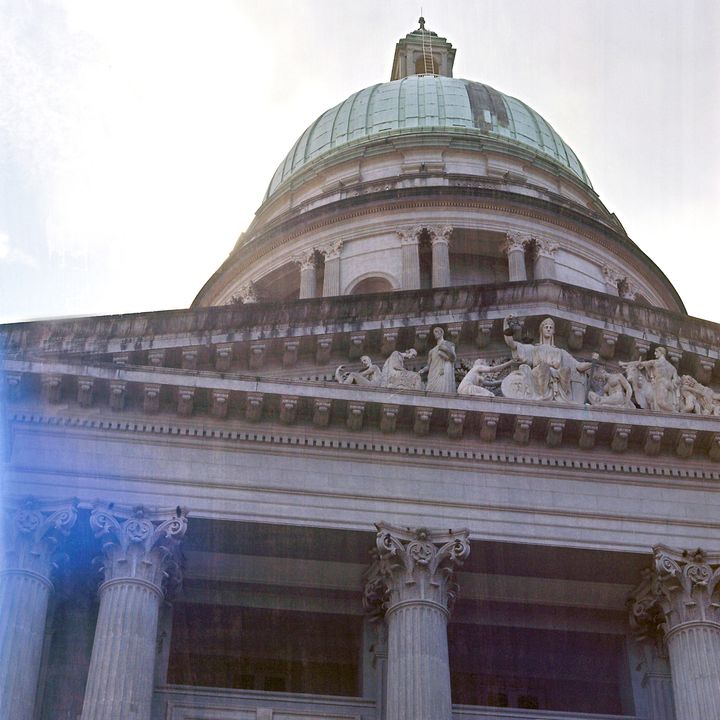QT 06/05/2025 Tue. Isaiah 63. Prayer for Mercy. 祈求怜悯.

QT 06/05/2025 Tue. Isaiah 63. Prayer for Mercy.
READ http://www.esv.org/isaiah63
In a prayer for mercy that we might address God in our daily lives, phrases like “my right” or “my righteousness” do not appear at all. Just like in Isaiah 63, phrases like “deal falsely” (63:8) and “grieved his Holy Spirit” (63:10) and the like are more likely to be featured. It was no surprise then the LORD responded with anger and wrath (63:3).
However, Isaiah 63 pointed to more positive phrases and ideas—remember :-
(1) the prophet RECOUNTED the steadfast love of the LORD (63:7);
(2) RECOUNTED the great goodness bestowed to the house of Israel, their ancestors (63:7);
Isaiah 63:11 Then he remembered the days of old, of Moses and his people. Where is he who brought them up out of the sea with the shepherds of his flock? Where is he who put in the midst of them his Holy Spirit, (ESV)
(3) The LORD doesn’t forget, that was not possible. But He did now choose to bring that part of history onto the “table” in front of Him to be processed for the decision at hand—He “remembered”;
Isaiah 63:16–17 [16] For you are our Father, though Abraham does not know us, and Israel does not acknowledge us; you, O LORD, are our Father, our Redeemer from of old is your name. [17] O LORD, why do you make us wander from your ways and harden our heart, so that we fear you not? Return for the sake of your servants, the tribes of your heritage. (ESV)
Human beings might forget or forgo prior friendships for greener pastures. Even when our friends forget us, we are to remember and appeal to the LORD as “our Father” (which was repeated in vv. 16) in a prayer for mercy.
The obstacles to receiving mercy might be external (“Edom” and “Bozrah”, 63:1) but frequently internal too—the enemy of sin which resides in every heart. These obstacles prevent God's people from approaching Him for mercy. A physical return from Babylon to Jerusalem or a physical church building today would not by itself defeat this enemy.
APPLICATION: How then can the LORD defeat sin and evil? He does this by tackling the evil head on and defeating it there and then—represented by all the altars of sacrifice enacted and ultimately on the Cross. Therefore, we pray earnestly for the Father’s mercy, at every episode of sin and true repentance and be assured that He hears us.
QT 06/05/2025 星期二. 以赛亚书 63. 祈求怜悯.
阅读 http://m.bbintl.org/bible/ncv/isa/63
在我们日常生活中向上帝祈求怜悯的祷告中,根本没有出现 “我的权利 ”或 “我的公义 ”这样的词语。就像在以赛亚书第 63 章中一样,“虚假”(63:8)和 “使他的圣灵忧伤”(63:10)之类的短语更有可能出现。耶和华以愤怒和忿怒作为回应(63:3)也就不足为奇了。
然而,以赛亚书第 63 章指出了更多积极的语句和观点--回想
(1)先知回想到耶和华坚定的爱(63:7);
(2) 先知也记念赐给以色列家(他们的祖先)的大恩惠(63:7);
以赛亚书63:11 那时,他们(原文作他)想起古时的日子摩西和他百姓,说,将百姓和牧养他全群的人从海里领上来的,在哪里呢?将他的圣灵降在他们中间的,在哪里呢?
(3) 耶和华不会忘记,那是不可能的。但祂现在确实选择将这部分历史摆在祂面前,以便为手头的决定进行处理--祂“记得”;
以赛亚书 63:16-17 [16] 亚伯拉罕虽然不认识我们,以色列也不承认我们,你却是我们的父。耶和华阿,你是我们的父。从万古以来,你名称为我们的救赎主。17 耶和华阿,你为何使我们走差离开你的道,使我们心里刚硬不敬畏你呢?求你为你仆人为你产业支派的缘故转回来。
人类可能会为了更美好的生活而忘记或放弃先前的友谊。即使我们的朋友忘记了我们,我们也要记住耶和华是 “我们的父”(第 16 节重复了这一点),并向耶和华神祈求怜悯。
获得怜悯的障碍可能是外在的(“以东 ”和 “伯斯拉”,63:1),但往往也是内在的--罪的敌人,它存在于每个人的心中。这些障碍阻止神的子民向祂寻求怜悯。今天,从巴比伦回到耶路撒冷或实体的教堂,本身并不能打败这个敌人。
应用:那么耶和华如何战胜罪恶和邪恶呢?祂的方法是迎头痛击邪恶,在那里和那时打败它--以所有的祭坛为代表,最终在十字架上打败它。因此,我们在每一次犯罪和真正悔改时,都要恳切地祈求天父的怜悯,并确信祂会听我们的祷告。


